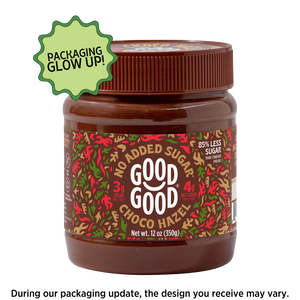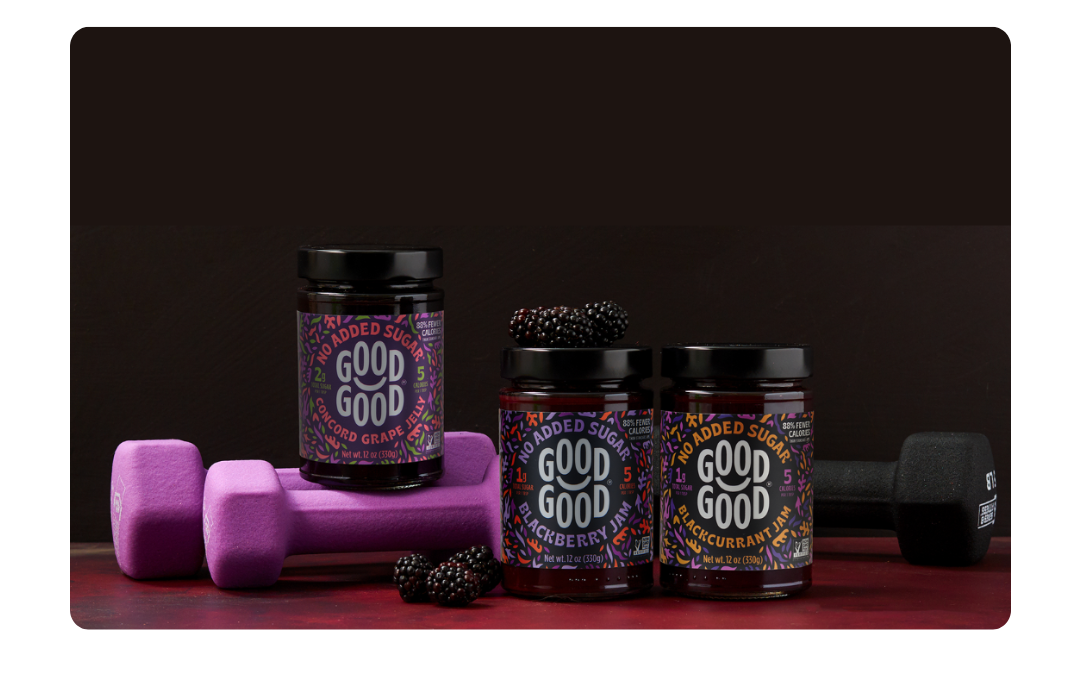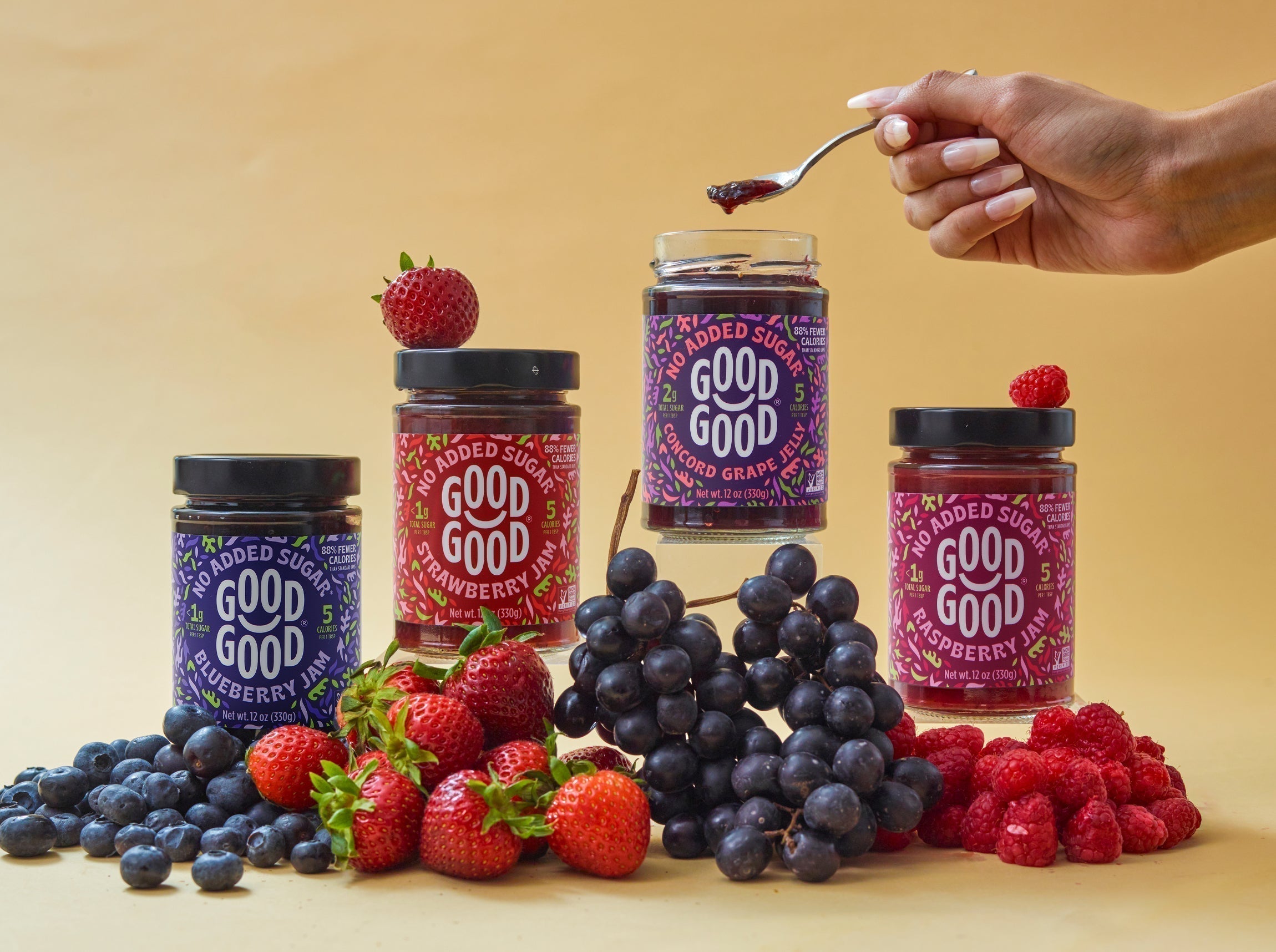Are you looking for ways to sweeten your diet and wondering “What can I substitute for sugar?” You're not alone!
Whether it's artificial sweeteners vs natural sweeteners, a sugar replacement offers a sweet alternative with higher nutritional value. Whether for health or dietary reasons, finding the right substitute is crucial.
In this article, we at GOOD GOOD will explore erythritol and stevia, two popular sweeteners, guiding you towards better, alternate sugars to promote wellness in your lifestyle.
What this article covers:Best Healthy Sugar Alternatives
Navigating the world of sugar substitutes can be complex. That's why we've simplified the choice for you by focusing on two of the ultimate alternatives: erythritol and stevia.
Sugar Alcohols: Erythritol
Erythritol, a sugar alcohol, offers a sweetness similar to processed sugar, which makes it the best low calorie sweetener.
It doesn't affect insulin levels, making it a perfect option for diabetics.
After putting it to the test, our GOOD GOOD Sweet Like Sugar product is an excellent erythritol-based natural sweetener in this regard.
Our erythritol product has a number of additional health benefits, including:
- prevention of tooth decay and gum disease
- promotion of robust blood sugar levels
- reduction of calorie intake
- versatility in usage over a number of diets (keto, gluten-free, vegan and vegetarian)
With Sweet Like Sugar, you can seamlessly replace traditional sugar sources in baking and cooking without the aftertaste typically associated with other sugar alcohols.
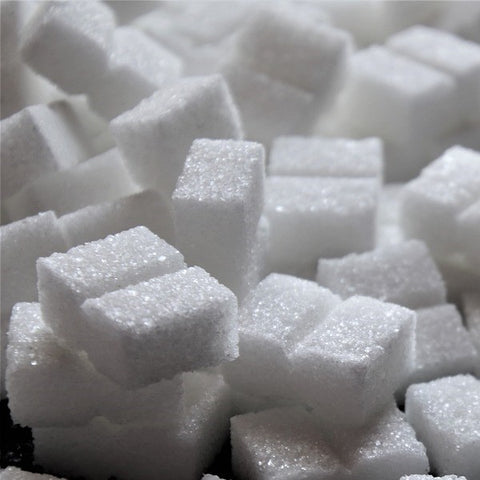
Novel Sweeteners: Stevia
Stevia is a natural sweetener extracted from the leaves of the Stevia rebaudiana plant of Paraguay, which is significantly sweeter than refined sugar.
Based on our first-hand experience, it's an ideal choice for maintaining healthy blood sugar levels.
Moreover, Stevia is renowned for having the following advantages:
- It's well suited for keto and low-carb diets
- It can aid with weight management
- Its antitumor activities could potentially play a vital role in future cancer research
You can use our stevia vanilla drops in everything from your morning coffee to desserts; it's also an excellent alternative to sugar in tea.
By incorporating these GOOD GOOD replacements into your diet, you can enjoy the sweet tastes you love while contributing to your wellness.
Sugar Substitutes FAQs
How Do I Decide Which Sugar Alternative Is Right For Me?
Through our practical knowledge, choosing the right sugar alternative depends on your:
- dietary needs
- health goals
- taste preferences
For those managing obesity or diabetes, sugar alcohols like erythritol or novel sweeteners like stevia can be excellent choices as they don't spike blood glucose levels.
Being 70% as sweet as processed sugar, our findings show that erythritol is a sugar replacement that tastes like sugar, and particularly beneficial in homemade baked goods.
In contrast, stevia is 600 times sweeter than regular sugar, so a little goes a long way in foods and drinks.
How Do You Use Unrefined Sweeteners In Baking?
Unrefined sweeteners like honey, maple syrup, and agave can substitute for refined sugar in baking, but adjustments are necessary.
Here's how you can do it:
- Generally, for every cup of processed sugar, we recommend substituting with ⅔ to ¾ of a cup of the sweetener, particularly when it's in liquid form. This is especially true of our stevia drops. Drawing from our experience, you only need to replace one cup of regular sugar with one teaspoon of our liquid stevia.
- Reduce the overall liquid in the recipe by approximately one ¼ of a cup and lower the baking temperature by 25°F to prevent over-browning.
Alternatively, you can use our Sweet Like Sugar natural sweetener made with stevia and erythritol. After putting it to the test, it's both heat-stable and incredibly versatile, making it one of our best natural sweeteners for baking.
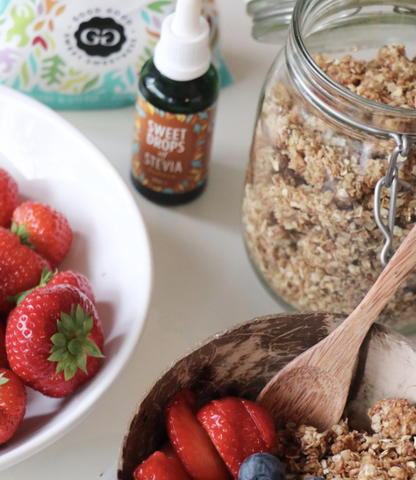
What Are The Best Tips For Reducing Refined Sugar In Your Diet?
Reducing refined sugar can seem daunting, but with small, consistent changes, it's entirely achievable with our expert tips:
- Start by substituting traditional sugars with natural sweeteners in your daily coffee or tea.
- Integrate fruits and natural sweeteners into your baking and cooking.
- Pay attention to labels and choose products with no added sugars or suitable replacements like honey or a GOOD GOOD no sugar honey substitute.
- Gradually decrease the amount of sweetness you add to foods and beverages to adjust your palate.
By incorporating these approaches and utilizing our range of no sugar added products, you can enjoy delicious, sweet flavors without the negative impacts of traditional sugars.
Conclusion
In this sweet journey, we've explored 'What can I substitute for sugar?' and highlighted how erythritol and stevia can be your best allies in this context.
Our healthier sugar substitutes are the perfect way to enjoy the sweetness without the sugar spike. So, don't hesitate and visit us at GOOD GOOD to sweeten your life the healthier way!
Did our blog meet your needs? You might also find our other guides helpful:
- Is Grape Jelly Gluten Free?
- Is Jelly Gluten Free?
- Is Jam Gluten Free?
- Is Orange Marmalade Gluten Free?
- Is Sugar Free Jelly Good for Diabetics?
- Is Sugar Free Jelly Good for You?
- Best Jelly for PB&J
- Best Grape Jelly
- Peanut Butter and Jelly Alternatives
- Red Currant Jelly Alternative
- Is Stevia Healthy?
- Is Stevia Good for Diabetics?
- Is Stevia Keto?
- Best Natural Sweetener
- Healthiest Sweetener for Coffee





![[title] Reforestation Donation by Dollar Donation Club sold by US GOOD GOOD®](http://goodgoodbrand.com/cdn/shop/files/DollarDonationClubShopify_1_300x.jpg?v=1712681952)
